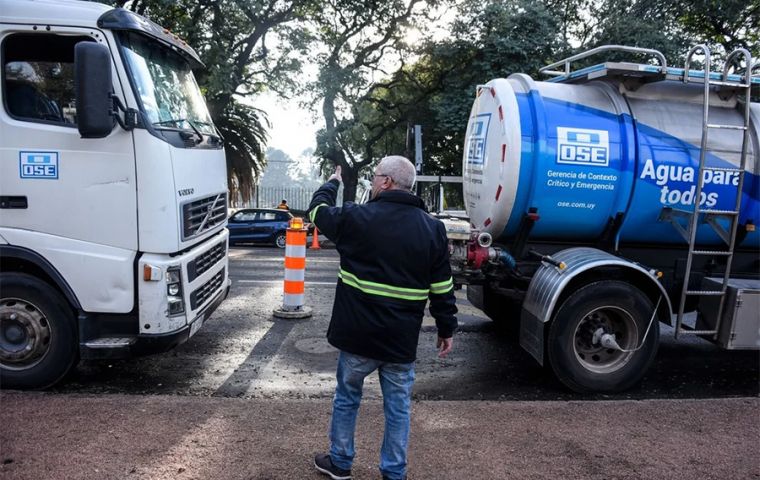MercoPress. South Atlantic News Agency
UN Coordinator in Uruguay praises local gov't for efforts handling water crisis
 The experts who issued last week's critical report “are independent of any government or organization,” Ruiz Hiebra explained
The experts who issued last week's critical report “are independent of any government or organization,” Ruiz Hiebra explained Pablo Ruiz Hiebra, United Nations (UN) Coordinator in Uruguay, Sunday highlighted the “efforts” of the South American country's government in the face of the water crisis.
Last week, UN experts including the special rapporteur on the Human Right to Drinking Water and Sanitation, Pedro Arrojo-Agudo, had urged local authorities “to prioritize the use of fresh water for human consumption” while warning that the increase in water salinity harms “significantly vulnerable groups, such as children and adolescents, pregnant women and people suffering from chronic diseases. The specialists had also pointed out ”the underlying problem is the overexploitation of water, especially by some industries in the country“ and that the fact that health authorities urged ”buying bottled water“ could lead to a ”de facto privatization of water for human consumption.”
In response, the Uruguayan Foreign Ministry stressed that the water supplied by Obras Sanitarias del Estado (OSE) “continues to be drinkable” and insisted that the government provided bottled water to the most vulnerable population.
On Sunday, the United Nations resident coordinator in Uruguay emphasized that the team of the international organization in the country “has been monitoring the situation and accompanying the response work of the Uruguayan government, in multiple areas such as the health of the population or the potential impacts on children”. He stressed that it has worked “in close coordination” with the government and that the United Nations “recognizes the various national efforts to respond to the emergency in several areas, with an emphasis on assistance to the most vulnerable people.”
“It is important to continue to prioritize the rights of the most vulnerable populations, in order to leave no one behind,” he added. He went on to clarify that “The Special Rapporteurs are part of what is known as the Special Procedures of the Human Rights Council.” These are independent fact-finding and monitoring mechanisms that address specific country situations or issues worldwide. “Special Procedures experts work on a voluntary basis, are not UN staff, and provide an unpaid service,” he underlined. “They are independent of any government or organization.”
Finally, he pointed out that the United Nations system is determined to “continue supporting the Uruguayan authorities both in the emergency and in the search for sustainable development solutions, in its environmental, economic and social pillars, in order to achieve the Sustainable Development Goals by 2030.”




Top Comments
Disclaimer & comment rulesCommenting for this story is now closed.
If you have a Facebook account, become a fan and comment on our Facebook Page!